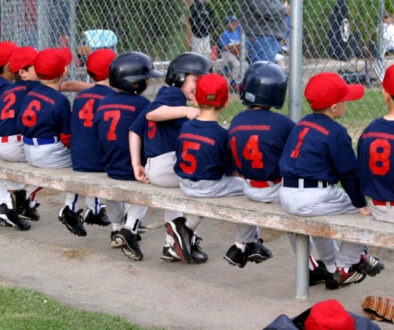Unreasonable Team Parents? These Baseball Teams Don’t Have Any
One of the biggest headaches involved with running a sports academy that hosts teams?
Unreasonable team parents.
Confrontations with these parents are draining, persistent, and distract from important coaching work.
That’s why I was so impressed when one of my eSoft Planner clients mentioned he doesn’t have these types of problems in his organization.
Anthony Yacco is a former San Francisco Giants pitcher who runs NY Swarm Travel Baseball, an elite college-prep baseball program with 6-10 teams on a given year. He also runs 4D Sports Performance Center, which hosts a nationally accredited pitching academy and other top programming. He’s one of only 16 Regional Directors for the National Pitching Association (NPA).
His approach to parental involvement is deeply rooted in his organization’s mission. He has refined it over years of experience to focus on collaborating with parents.
Here are three steps he takes to avoid the problems that other sports organizations deal with regularly.
1. He makes sure parents are informed.
Before their kids join NY Swarm, Anthony makes sure all parents learn three things:
The coaches’ credentials. If parents truly understand just how qualified their kids’ coaches are, they’re less likely to get personally involved. “I sit down with parents in a group setting. I give them our resumes and tell them what we bring to the table,” Anthony explains. He lets them know that his whole staff played in college or professionally and that they have degrees in areas such as exercise science, kinesiology, athletic training, biomechanics and nutrition.
What will be expected of their kids. The NY Swarm is highly focused on getting players to the college or professional level, so the commitment is serious. Expectations go beyond players giving 100% effort during every practice. They’re also expected to maintain a good GPA as well as live a lifestyle with proper nutrition. Parents should understand those expectations clearly so they can support their kids.
Their role as parents in their players’ success. Anthony emphasizes that parents’ most important role is to actively support their son’s hard work. He encourages parents to listen to their kids on their bad days, and talk to them on their good days. This positive communication between parents and kids often stops parent complaints before they start.
2. He makes expectations clear each year before tryouts.
At the end of each season, Anthony hosts an event for every family in his organization, regardless of whether they’re returning for the next year.
The event is usually held at the local golf club. It features a catered dinner and at least one guest speaker.
After dinner and the presentations, it’s time for Anthony to break down NY Swarm’s rules and regulations and spell out the expectations for each group.
He explains their mission and their goals and urges anyone who may have issues to discuss with him immediately. Encouraging parents to speak to him upfront paves the way for a smooth season. Anthony believes the “open door policy” and the “24 hour rule” are a must for success in youth sports.
3. If the program is not a good fit, he gives families an out.
Although the first two steps usually prevent parents from getting over-involved, a few persistent complainers still pop up occasionally.
If reminders of his staff’s credentials and their full-time commitment to baseball don’t resolve the issues, he’s willing to take a step that most programs wouldn’t: Refunding team payments so players don’t have to continue with the program.
It’s tough for most of us to turn down cash — especially when parents don’t mind paying for the best.
However, it’s the right thing to do, Anthony says. It helps families make the right decisions for their kids. Usually, the root cause of parents’ problems is that their child isn’t fully committed to playing professional level baseball and the parent is trying to live through their kid.
“There’s no point spending thousands of dollars over years of training to have players decide at the end of it that they don’t have it in them to play at the next level,” he explains.
By putting his organization’s mission and brand above short-term profits, Anthony sets his organization apart from competitors and strengthens it for the long-term.
For more advice on dealing with team parents and improving your facility, book a consultation with our experts.



